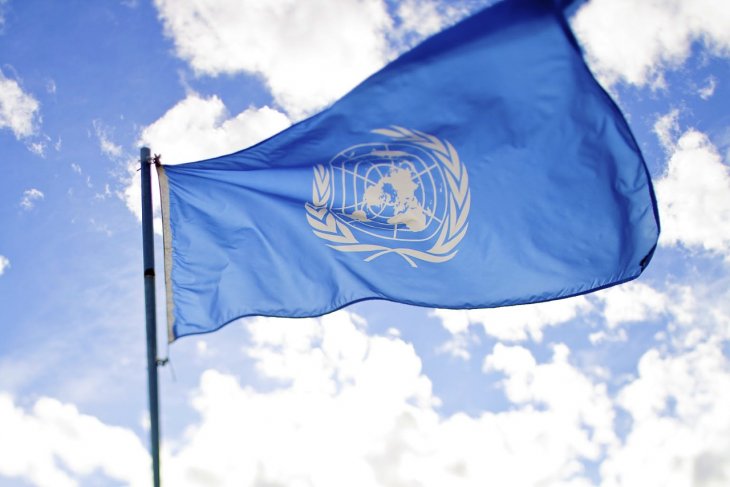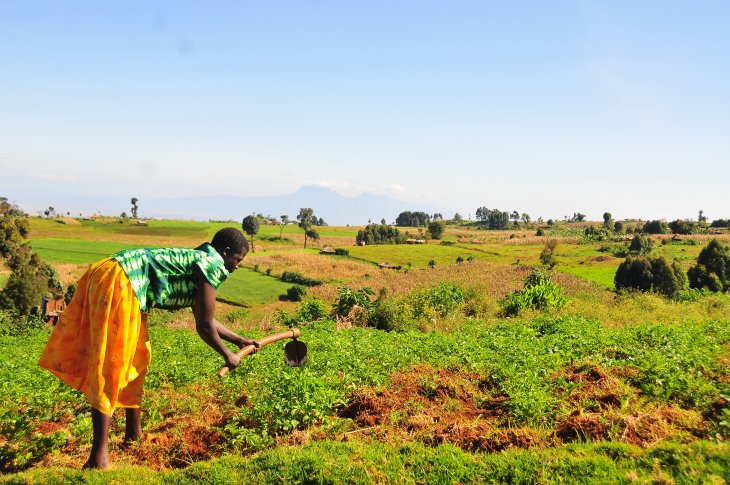The security implications of climate change have increasingly been debated in the United Nations Security Council. Yet, there is a growing concern by many UN member states about the lack of adequate responses to the risks that climate change poses to peace and security. In recent years, some modest but notable changes at the UN have taken place, of which the creation of the Climate Security Mechanism is the primary example.
This blog post, which first appeared as a SIPRI Policy Brief last week, summarizes the recent evolution of the climate security debate in the UN and highlights three priority areas for future action: (a) supporting and establishing climate security action in the field, (b) nurturing knowledge provision and (c) building sustainable sources of financing for climate security action. All these steps will require committed actors, innovation and long-term investment.
Escalating climate impacts make the mitigation of climate-related security risks by the UN and its member states not only demanded but urgent. Recent institutional progress demonstrates that committed and cooperative actors can drive institutional change. This progress must be bolstered and action delivered in the field.

United Nations flag. Photo: sanjitbakshi / Flickr / CC BY 2.0
Introduction
The understanding of climate change’s immense impacts is growing globally. The United Nations Security Council has increasingly been debating the security implications of climate change in recent years. In an open debate held by the Dominican Republic, more than 80 speakers discussed how to respond to climate-related security risks. Despite the reluctance of a small number of delegations, most participants agreed that climate change is affecting peace and security and will continue to do so, and that the entire UN system needs to be engaged in addressing climate change.
The debate took place after two years of significant progress by the UN on strengthening its capacity to respond to climate-related security risks. This policy brief describes the recent evolution of the climate security debate in the UN, focusing on the Security Council, and highlights three areas for action.
Beyond resolutions
The Security Council first discussed the adverse effects of climate change on peace and security in 2007. However, it was not until 2011 that the Security Council took the next step in addressing the issue by agreeing to a presidential statement calling for ‘contextual information’ on the possible security implications of climate change. While neither the Security Council nor the broader UN system undertook any operational activity, climate change debates continued—predominately in informal meetings of the Security Council. Finally, in 2017 more concrete steps were taken.
The adoption of Security Council Resolution 2349 on the situation in the Lake Chad Basin region in March 2017 marked a turning point for discussions on climate-related security risks. The Security Council recognized that climate change was shaping the peace and security landscape in the area and emphasized ‘the need for adequate risk assessments and risk management strategies by governments and the United Nations relating to these factors’. The resolution’s specific focus on a geographical context—rather than a more general thematic discussion —was a compromise that even reluctant delegations could accept. With this resolution, climate change grew beyond its categorization as a hypothetical, existential risk and became an operational concern of relevance to peace and security practitioners, requiring institutional capacity.
Following the Lake Chad resolution, the Security Council repeated the need for climate risk assessments in several other resolutions (see e.g. UN Security Council resolutions 2423 (28 June 2018), 2448 (13 Dec. 2018), 2429 (13 July 2018), and 2408 (27 Mar. 2018)). However, subsequent reporting only partially succeeded in fulfilling these requests. For instance, the Secretary-General’s report on Lake Chad, which came six months after Resolution 2349, did not include climate risks in its assessment. Countries thus began to call for greater UN capacity to fulfil the Security Council’s requests for climate-related security risk assessments and related management strategies.

In Uganda, participants have visited Mount Elgon and communities on its slopes to observe emerging micro-climate changes, their causes and effects so to discuss coping mechanisms and suitable adaptation strategies. Photo: Mountain Partnership at FAO Follow/ Flickr / CC BY-NC 2.0)CC BY 2.0
Institutional capacity
To begin strengthening the UN’s capacity to assess climate-related security risks, a modest Climate Security Mechanism was established in October 2018, hosted by the UN Department of Political and Peacebuilding Affairs with additional staff from the UN Development Programme and the UN Environment Programme. Its creation was made possible thanks to targeted financial support from a member state. This mechanism is tasked to support the UN system to produce climate-related security risk assessments and propose management strategies. Although the mechanism is modest, this institutional development marks the first dedicated capacity for an integrated approach to climate-related security risks in the UN system.
In parallel, proactive non-permanent members of the Security Council worked with like-minded UN member states to create a Group of Friends on climate security. This channel provides a second institutional strengthening by establishing a locus for advocacy of and support for the climate security agenda in the Security Council and the broader UN system.
What next for the UN system?
Progress in the Security Council has served as a strategic confidence-building process for climate security across the UN system. The Security Council will serve as an important vehicle, together with other organizations, for strengthening policy frameworks and institutional developments that can withstand political uncertainties. Building on debates and consultations held in various forums, three interrelated areas for action have emerged: delivering security and resilience in the field, deepening climate security knowledge provision, and financing climate security action.
Delivering security and resilience
The next step for the UN will be to deliver results. To build greater political consensus, field-based work will be needed to demonstrate proof of concept that investment in such action supports sustainable peace. Bringing climate knowledge to risk assessment processes is a shift that requires resources, leadership and long-term thinking. The tendency to focus on short-term time horizons is insufficient to accommodate the multiple time frames in which climate risks manifest themselves. Experience from similar change processes shows that often the most effective interventions succeed by working through existing entry points, which involves updating training, increasing incentives and clarifying job descriptions. In collaboration with partner countries and affected areas, resident coordinators, mission leaders and core support teams, such as peace and development advisers, are all central to institutional change processes in the field.
Beyond an integrated approach, a delivery framework should be tested in the field to generate proof of concept for climate-related security risk management strategies. The approaches to responding to risks are predominately preventive and involve early warning, mediation, building back better and strategic adaptation as well as incorporating climate risk awareness into diplomacy, development and ongoing conflict prevention and peacebuilding processes.
Deepening knowledge provision
Knowledge of how, when and why climate-related security risks arise is developing rapidly in research and policy arenas. Collaborating across these domains will more effectively and efficiently enable the identification of responses to climate-related security risks. To avoid institutional bias and to combat inertia, the UN system would benefit from independent research that helps to inform capacity development processes. The Climate Security Mechanism can play a constructive role as a broker between the UN system and the research community, acting as a ‘translator’ among different communities (see, e.g., this report, pp. 14–15). There is demand in the field for analysis that takes a holistic approach and makes an informed assessment based on political economy. For example, the independent Expert Working Group on Climate-related Security Risks, which has produced four risk assessment reports, has built up experience of this translation across domains. Facilitated knowledge-sharing is also needed within the UN system.
In addition, research-informed policy innovation will be necessary. Insights from other institutional change processes, such as those on gender equality and cybersecurity, can be a source of inspiration.
Financing action
The systemic nature of climate-related security risks makes financing challenging. Funding is often siloed, which hinders integrated responses. ‘Climate security’ is not a budget line item and responses take other, often multiple, labels such as resilience, climate change adaptation, disaster risk reduction, peacebuilding and development. Innovative responses can be implemented by integrating climate security into existing funds such as the Peacebuilding Fund. Increasing the financial support for responding to climate-related security risks will require institutional capacity and policy change. Institutional capacity. The provision of sustainable funding for the Climate Security Mechanism will be required to develop the UN’s capacity to address climate-related security risks in decision making and programming. Contributions could be made by member states in the first instance but, in the long term, it needs to be incorporated into core UN funding.
Policy change. Multilateral development funds as well as other security, climate and development funds must be encouraged to include climate-related security risks within their remit. Through this, powerful synergies will be achieved. Climate adaptation and resilience projects, for example, could then be informed by security risks, thereby maximizing their effectiveness.
Conclusions
The Security Council has treated climate change with increasing levels of seriousness and sophistication in recent years. With mounting climate impacts, there is a growing concern among many UN member states about the lack of adequate responses to the risks that climate change poses to peace and security. Importantly, the Security Council cannot and should not be the only organ for managing climate-related security risks. Changes are required across the broader UN system. There is a dual need to better understand how these risks play out in various geographical contexts and how the multilateral system can respond. This policy brief suggests three key priorities as next steps for the UN: (a) supporting and establishing climate security action in the field, (b) nurturing knowledge provision and (c) building sustainable sources of financing for climate security action. Ensuring the feasibility of each step will require committed actors and long-term investment.
Growing precedent in Security Council resolutions and the establishment of the Climate Security Mechanism show that collaboration among committed member states can have an impact, despite opposition from some. This progress, together with an urge from affected countries and populations, has built clear momentum for enhancing preventive measures that can counteract the adverse effects of climate change. The increasing manifestation of the impacts of climate change calls for urgent action by the UN and its member states to mitigate climate-related security risks.
This guest blog post originally appeared as a policy brief, published by the Stockholm International Peace Research Institute, SIPRI. It has been lightly edited to fit the blog post format. The policy brief is supported by funding from the Swedish Ministry for Foreign Affairs as part of SIPRI’s Climate Change and Security Project. The opinions expressed here do not necessarily reflect those of the funding institution.
Camilla Born (United Kingdom) is an Associate Senior Fellow with the SIPRI Climate Change and Risk Programme.
Karolina Eklöw (Sweden) is a Research Assistant with the SIPRI Climate Change and Risk Programme.
Dr Malin Mobjörk (Sweden) is a Senior Researcher and Director of SIPRI’s Climate Change and Risk Programme.
[…] efforts to strengthen the laws protecting the environment in relation to armed conflicts, and to establish a Climate Security Mechanism. They also welcome the increasing recognition of the role of the […]
[…] efforts to strengthen the laws protecting the environment in relation to armed conflicts, and to establish a climate security mechanism. They also welcome the increasing recognition of the role of the […]
[…] strengthen the laws protecting the environment in relation to armed conflicts, and to establish a climate security mechanism. They also welcome the increasing recognition of the […]